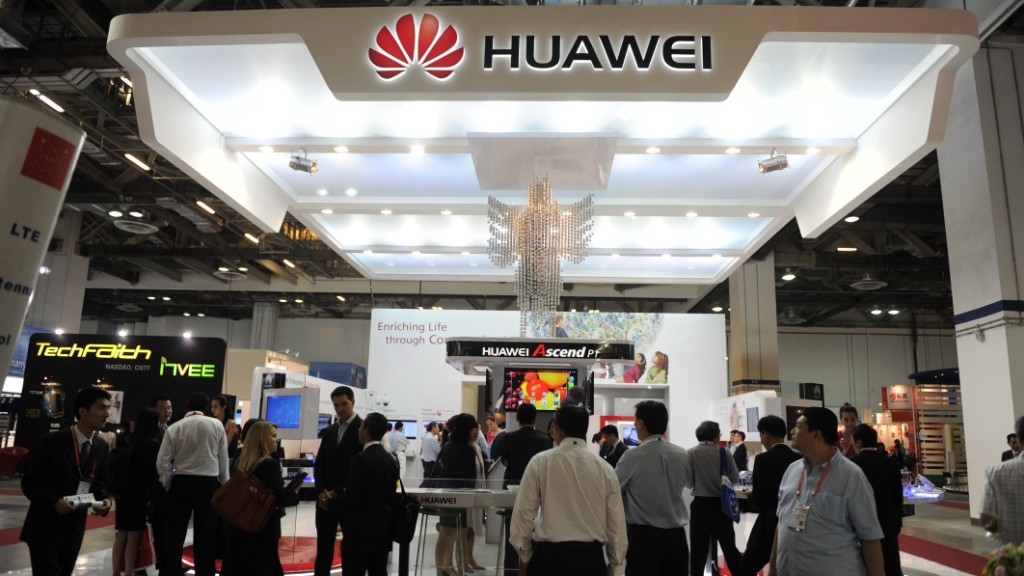
Two of China's largest telecom companies disputed the findings of a critical congressional report Monday, saying their products are safe for use in the U.S.
The report, prepared by the House Intelligence Committee, is focused on the business practices of Huawei and ZTE, two Chinese companies that would like to expand their business operations in the U.S.
"The risks associated with Huawei's and ZTE's provision of equipment to U.S. critical infrastructure could undermine core U.S. national-security interests," the report states.
The findings are particularly critical of Huawei, which the committee alleges "provided evasive, nonresponsive, or incomplete answers to questions at the heart of the security issues posed."
Huawei disputed the report's findings on Monday, calling them "baseless." The company said that it cooperated with investigators "in open and transparent manner," making available its top executives and a wealth of its corporate information.
"Despite our best effort, the Committee appears to have been committed to a predetermined outcome," Huawei said in a written statement. "We have to suspect that the only purpose of such a report is to impede competition and obstruct Chinese ICT companies from entering the U.S. market."
ZTE, the smaller of the two companies, said in a statement that its products are safe and that it had set "an unprecedented standard for cooperation by any Chinese company with a congressional investigation."
The company also provided a copy of its final correspondence with the committee, which says it "profoundly disagrees with any suggestion that the company is directed or controlled by China's government."
Related: What makes China telecom Huawei so scary?
Huawei and ZTE are two of the world's largest telecommunications companies, offering products that include routers and other Internet gear. The two companies have for years tried to expand operations in the West, only to be met with resistance over security concerns and fears over the firms' ties to China's government.
Huawei was blocked in March from bidding on a $36 billion Australian national broadband contract, and has been continuously passed over for U.S. contracts.
In addition to complaints over the Huawei's level of cooperation with the committee, the House Intel report is critical of the firm's record of intellectual property violations, alleged ties to Iran, and what the committee describes as "a pattern and practice of potentially illegal behavior" in the U.S.
The behavior in question, highlighted in the committee's report, includes immigration violations, bribery and corruption, discriminatory behavior and copyright infringement. The committee said the allegations, brought by several former and current Huawei employees, will be referred to federal law enforcement agencies.
The report recommends the U.S. "should view with suspicion" any plans for domestic expansion by Chinese telecom companies, and warns U.S. companies that they should consider security risks before dealing with Huawei and ZTE.
"Huawei and ZTE cannot be trusted to be free of foreign state influence and thus pose a security threat to the United States and to our systems," the report concludes.
Over the past year, Huawei has become increasingly vocal about what it sees as misinformation spread about the company. Most notably, Huawei released an open letter last February detailing its relationships with governments both in China and around the world.
The company constantly points to the many countries that it does do business in, including the United Kingdom, as examples of its integrity and focus on security.
There's a big incentive to keep haggling, pushing and persuading. The United States is a growing $30 billion telecom market. As mobile traffic soars and 4G networks roll out, there's a huge need for infrastructure spending.
-- CNN's Pam Benson contributed to this report.

